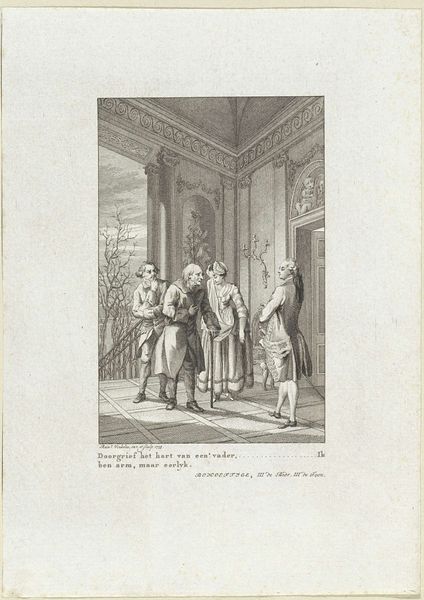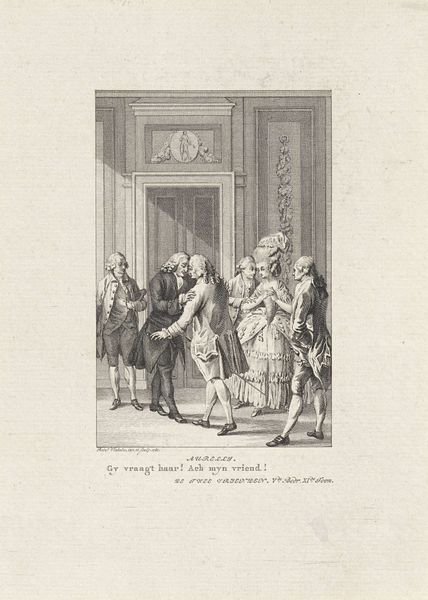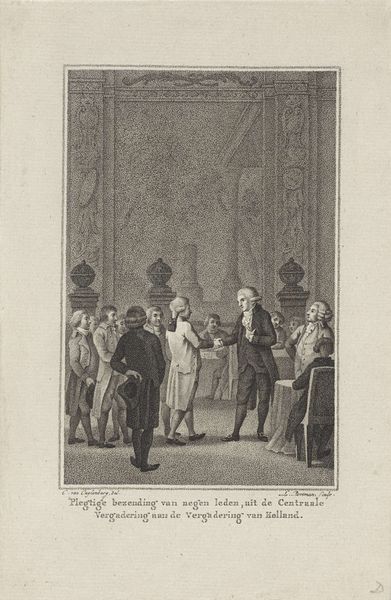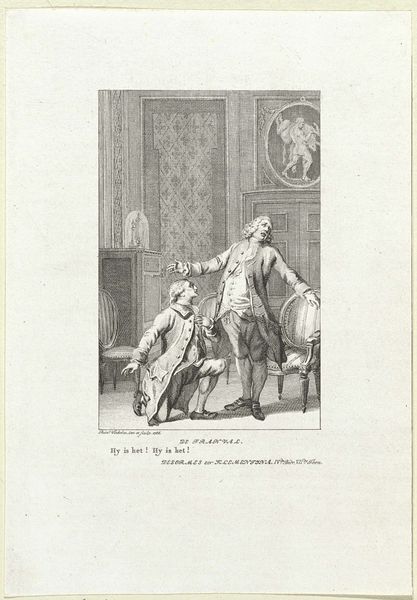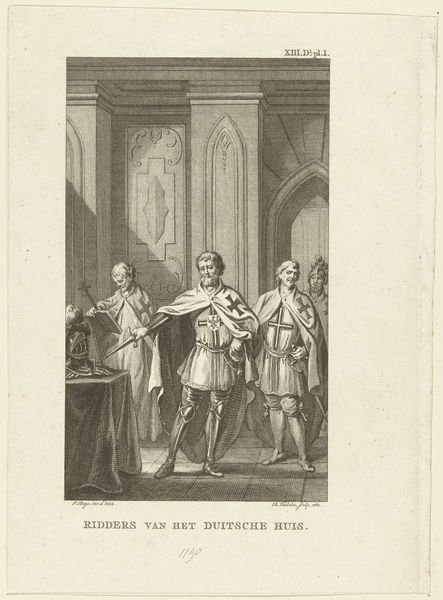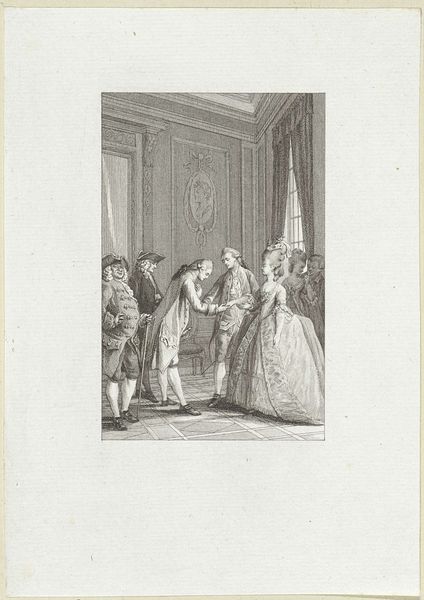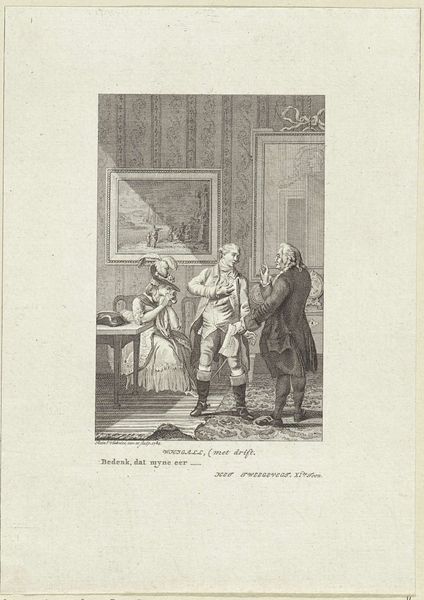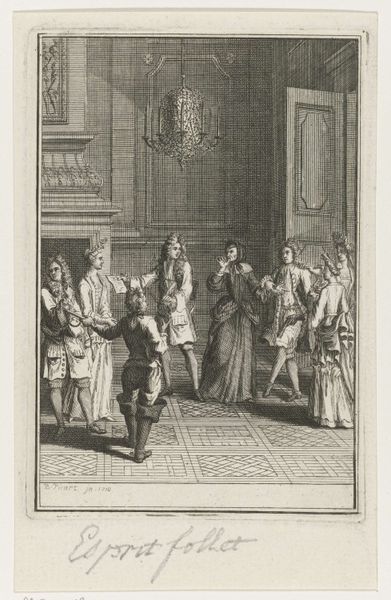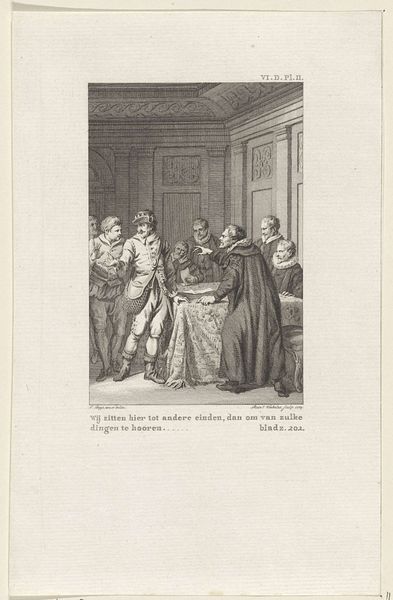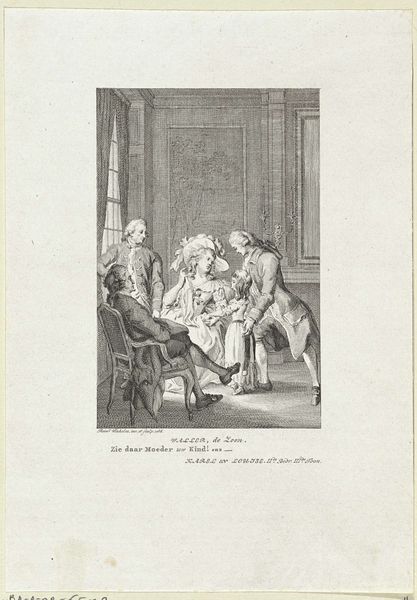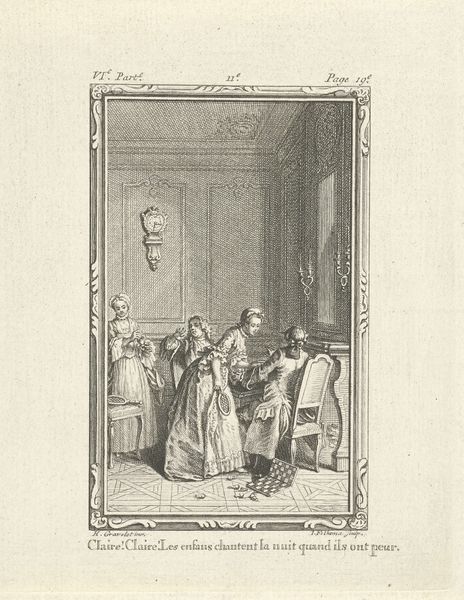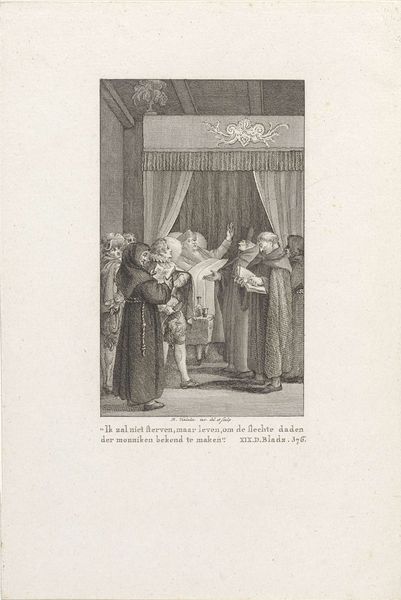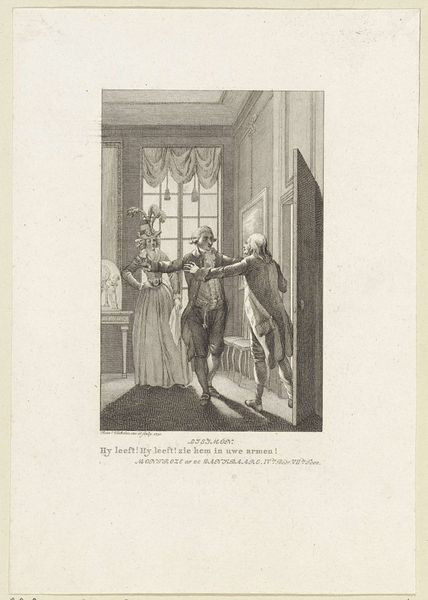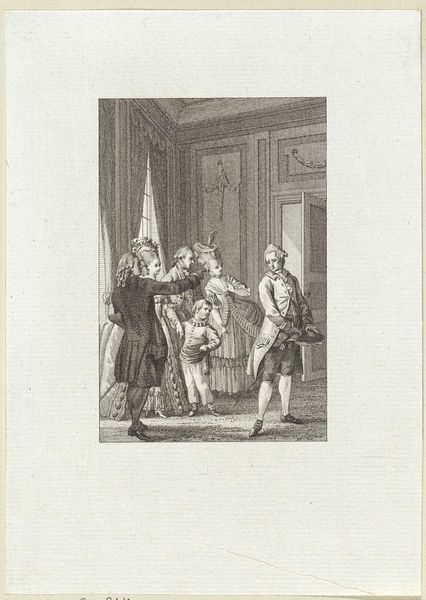
print, engraving
#
portrait
#
dutch-golden-age
# print
#
old engraving style
#
genre-painting
#
history-painting
#
engraving
Dimensions: height 209 mm, width 148 mm
Copyright: Rijks Museum: Open Domain
Reinier Vinkeles made this print depicting a group of people being shown a clock sometime in the late 18th or early 19th century. It’s a reproduction made using an engraving, a process that demands precision and control. Consider how each line is incised into a metal plate, which is then inked and pressed onto paper, leaving behind a permanent mark. This was a laborious, painstaking process, requiring the skills of trained artisans. Look closely, and you'll see the artist's hand in the fine lines and cross-hatching, each one carefully placed to create depth, shadow, and form. Prints like this democratized images in the 18th century, multiplying them to reach a broader audience. This print would have been relatively inexpensive, allowing those outside the elite to partake in a visual culture that was once the sole domain of the wealthy. In this case, we see a wealthy family, distinguished by their elaborate dress and wig. They have both a table clock and a wall clock, which marks their elevated status. It underscores how the means of production and reproduction can profoundly shape access to art and its social meaning.
Comments
No comments
Be the first to comment and join the conversation on the ultimate creative platform.
